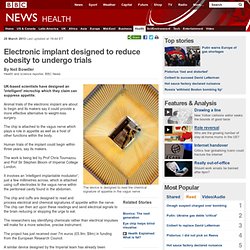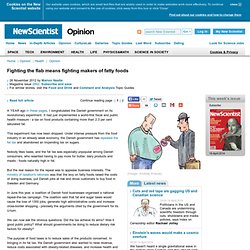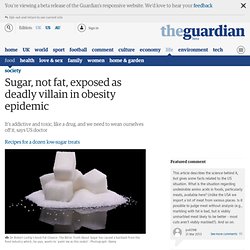

EX-99.1. Consumer Trends: Perceptions of Healthy Evolve. CHICAGO (PRNewswire) — Consumers are becoming increasingly health-conscious, but their perceptions of what is considered healthy eating at restaurants are also changing.

Contemporary definitions of health are strongly associated with local, natural, organic and sustainable food and drink. Additionally, consumers are taking more of a balanced and personal approach to healthy eating—seeking out better-for-you foods, while enjoying occasional indulgences. "More consumers than ever before tell us that eating healthy and paying attention to nutrition is important," says Darren Tristano, Vice President of Technomic. "However, there's a shift happening in terms of what actually defines healthy for them. We're seeing more consumers gravitate toward health-halo claims—such as local, natural and organic, as well as whole-wheat and free-range. Technomic's Healthy Eating Consumer Trend Report is a comprehensive study exploring healthy dining and health-attribute purchase drivers. Electronic implant designed to reduce obesity to undergo trials. 28 March 2013Last updated at 19:44 ET By Neil Bowdler Health and science reporter, BBC News The device is designed to read the chemical signature of appetite in the vagus nerve UK-based scientists have designed an 'intelligent' microchip which they claim can suppress appetite.

Animal trials of the electronic implant are about to begin and its makers say it could provide a more effective alternative to weight-loss surgery. The chip is attached to the vagus nerve which plays a role in appetite as well as a host of other functions within the body. Human trials of the implant could begin within three years, say its makers. The work is being led by Prof Chris Toumazou and Prof Sir Stephen Bloom of Imperial College London. Continue reading the main story “Start Quote The chip will tell the brain don't eat any more - the gut's full of food and you don't need to eat any more ” End QuoteProf Sir Stephen BloomImperial College, London.
We Should Measure Our Food In Exercise, Not In Calories. Fast food establishments in New York City and California are required to post how many calories are in the milkshake and fries you’re about to devour.

But does that actually do anything to dissuade people from eating high-calorie meals? Calories, after all, are just a meaningless number for many people (including this author) who don’t really think of their overall eating habits or exercise practices in terms of the flow of calories in and out of their bodies. Increasingly, researchers are showing there’s a better way than just calorie postings to encourage eaters to make healthier decisions: by informing consumers how much exercise it would take to burn a meal off. "People who viewed the menu without nutritional information ordered a meal totaling 1,020 calories, on average, significantly more than the average 826 calories ordered by those who viewed menus that included information about walking-distance," writes Scientific American. Fighting the flab means fighting makers of fatty foods - 26 November 2012. Read full article Continue reading page |1|2 A YEAR ago in these pages, I congratulated the Danish government on its revolutionary experiment.

It had just implemented a world-first fiscal and public health measure - a tax on food products containing more than 2.3 per cent saturated fat. This experiment has now been dropped. Under intense pressure from the food industry in an already weak economy, the Danish government has repealed the fat tax and abandoned an impending tax on sugars. Nobody likes taxes, and the fat tax was especially unpopular among Danish consumers, who resented having to pay more for butter, dairy products and meats - foods naturally high in fat. But the real reason for the repeal was to appease business interests. In June this year, a coalition of Danish food businesses organised a national repeal-the-tax campaign. We can now ask the obvious questions. The purpose of food taxes is to reduce sales of the products concerned. 1011.full. Fat Chance: The Bitter Truth About Sugar by Robert Lustig. Sugar, not fat, exposed as deadly villain in obesity epidemic.
Sugar – given to children by adults, lacing our breakfast cereals and a major part of our fizzy drinks – is the real villain in the obesity epidemic, and not fat as people used to think, according to a leading US doctor who is taking on governments and the food industry.

Dr Robert Lustig, who was this month in London and Oxford for a series of talks about his research, likens sugar to controlled drugs. Cocaine and heroin are deadly because they are addictive and toxic – and so is sugar, he says. "We need to wean ourselves off. We need to de-sweeten our lives. We need to make sugar a treat, not a diet staple," he said. "The food industry has made it into a diet staple because they know when they do you buy more. Lustig's book, Fat Chance: The Bitter Truth About Sugar has made waves in America and has now been published in the UK by 4th Estate. That does not mean burgers are OK. These amino acids are found in corn-fed American beef. But so is the US government, he says. . • Oranges.